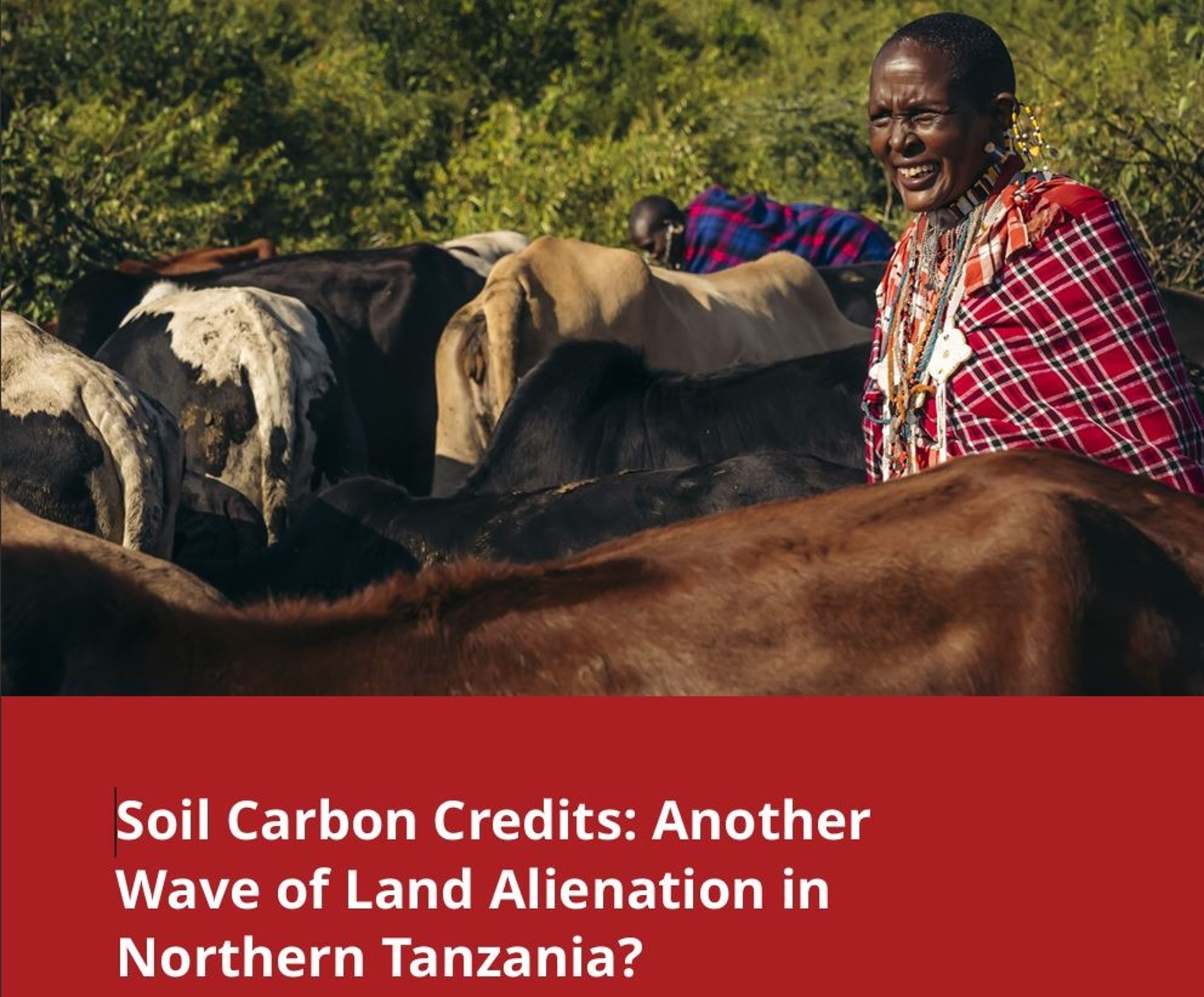
NO CARBON
Research report on soil carbon credit projects in Northern Tanzania
This report is the result of MISA’s in-depth investigation into emerging soil carbon credit schemes in Northern Tanzania, highlighting their potential for land alienation and adverse impacts on our Maasai pastoralist communities. The report critically examines two major soil carbon projects - The Longido and Monduli Rangelands Carbon Project (LMRCP) by Soils for the Future Tanzania Ltd (SftFTZ) funded by Volkswagen ClimatePartners and The Resilient Tarangire Ecosystem Project (RTEP) by The Nature Conservancy (TNC) - targeting Longido, Monduli, and Simanjiro districts.
The two competing projects, in a rush to secure signatures for project approval, have not ensured conditions for free, prior and informed consent (FPIC). The report presents key findings, elaborates on the indications of a lack of FPIC, anticipated impacts on pastoralism and mobility, and recommendations for further action. The major recommendation is a 5-year moratorium on all soil carbon deals in pastoralists’ rangelands in Northern Tanzania until the conditions for FPIC can be ensured.
The report is available in English, German, and Kiswahili.
Short and long versions are also available in English and Swahili.
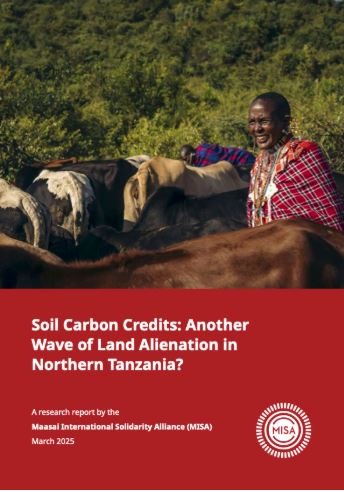

We call for an immediate five-year moratorium on all soil carbon projects in Maasai rangelands. The pause would allow time to develop stronger national and international regulatory frameworks and ensure genuine community consent. We insist that without these safeguards, soil carbon schemes risk becoming another form of land grabbing disguised as climate solutions.
We advocate against carbon offset projects that commodify community lands, and territories in the name of climate mitigation, while stripping Maasai people of our rights to access, manage, and benefit from our ancestral resources. Carbon credit deals are brokered through opaque contracts, enforced by private actors or governments, and disguised as “green development” but in reality, they restrict traditional livelihoods, affect pastoralist way of life and erode land sovereignty.
We work to expose these injustices and amplify the voices of Maasai communities resisting exploitative carbon markets. We promote just climate solutions rooted in customary land rights, free, prior and informed consent (FPIC), and ecological stewardship led by us pastoralists not financed by conservation organisations or car manufacturers from the distant Global North.
Climate justice cannot come at the cost of human rights. We stand with communities in their fight to protect their land from being turned into carbon sinks for profit.
ADDITIONAL RESOURCES
MISA’s response to Volkswagen
Read our counterstatement to Volkswagen’s denial of wrongdoing in the Longido and Monduli Rangelands Carbon Project. Since our first meeting with Volkswagen in Germany in September 2024, we haved requested several times, that the company investigate the situation and address our concerns. Volkswagen Clilmate Partner published a statement in response to our report that . was wholly inadequate, attempted to shift the narrative, and omitted key information from our report. Therefore, we published a point-by-point counterstatement to their claims. In this document, we explain why we call on Volkswagen to suspend its activities and respect our 5 year moratorium.
The response is available in English.
Blood Carbon: How a carbon offset scheme makes millions from Indigenous land in Northern Kenya
Read a research report by Simon Counsell and Survival International on the human cost and dubious environmental benefits of a carbon credit project in Northern Kenya. The Northern Kenya Grasslands Carbon Project (NKCP) covers an area that is home to more than 100,000 people of indigenous pastoralist groups, including Maasai. The NKCP relies on major changes to traditional grazing patterns which endanger pastoralist livelihoods and food security. As in the MISA carbon report, Blood Carbon also found inadequate FPIC processes. This report is highly relevant as it explores the impacts of a project developed by the same carbon proponent (Soils for the Future), using the same flawed methodology and ways of working.
The response is available in English.
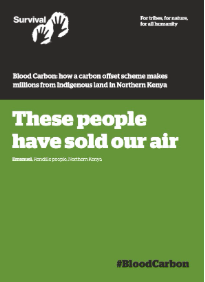

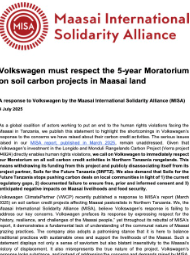

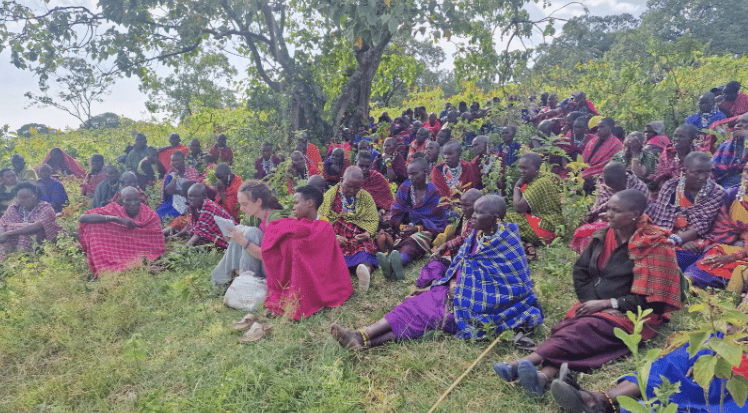

Carola Rackete, a former German member of the EU Parliament, visited pastoralist communities affected by evictions throughout Tanzania (3-7 March 2025). Credit: Carola Rackete.

Residents of Engaruka Chini Village Reject Chairman Over Land Sale Allegations

